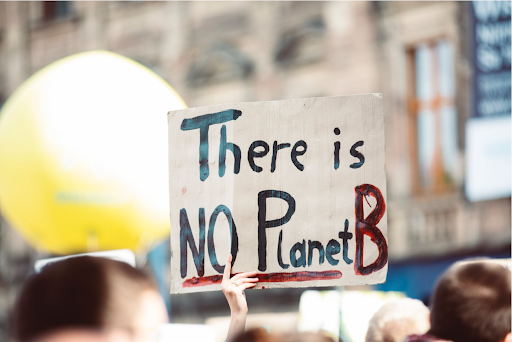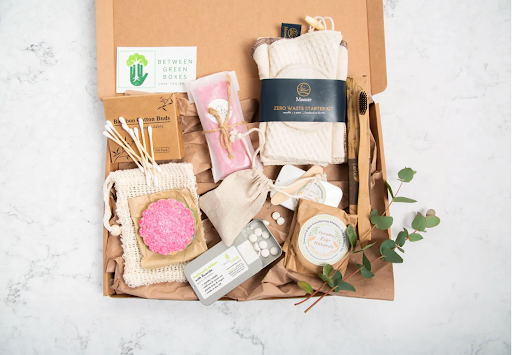
Images of animals displaced by wildfires, of floods destroying homes, and of melting ice caps are frequent, notable signs of climate change’s global impact.
Environmental experts, academics and business owners across Canada and the United Kingdom say these kinds of images are negatively impacting their mental health by contributing to their eco-anxiety.
Eco-anxiety is defined by the Canadian Mental Health Association (CMHA) as a deep fear of environmental doom and human catastrophe. It includes children losing sleep because they’re afraid for the planet’s future as well as climate scientists suffering a profound sense of loss from witnessing environmental damage.
Eco-anxiety has been a determining factor for Heather Crochetiere’s lifestyle choices.
“Everything from the food I eat, the purchases and waste I make and produce — it has all been impacted by my awareness of how dire the situation is,” said Crochetiere, a senior specialist of ecosystem restoration at World Wildlife Fund Canada.
“Struggling with eco-anxiety has definitely been a topic of conversation with my co-workers,” she said. “It’s easy to fall into a place where you feel sad, scared or angry, but it can be cathartic to know you’re not alone in how you feel.”
However, Crochetiere’s experience with eco-anxiety has not been entirely negative. Working through her eco-anxiety in ongoing talk therapy, she has learned how to channel her worries into a vessel for proactive change.
“My therapist and I always talk about claiming agency over eco-anxiety. It is the best way to deal with it,” Crochetiere said. “Remember that you are one person working alongside many other people, so the burden is not just on you.”
Academics and other professionals familiar with eco-anxiety now encourage people like Crochetiere to reframe their climate-related worries so they can use them for positive change.
Refashioning and redirecting eco-anxiety
Greg Dubord, an assistant professor in the department of psychiatry at the University of Toronto, says it is best to regard eco-anxiety as a constructive unpleasant emotion — a CUE.
“CUEs direct us to invest our energies into things that will enable us to thrive or flourish,” said Dubord via email. What he means is that by embracing the unpleasant emotions as constructive people might be better able to work through those feelings to take regular steps to help protect the environment.
That’s exactly what Jenna Phillips, sustainability commissioner at the University of Waterloo, has done.
“As a society we’re not well equipped to handle eco-anxiety, so we need to find ways other than doom and gloom to better engage people,” she said.
Phillips helped curb her own eco-anxiety by turning it into a career helping others. In 2017, she founded Clear the Air, an online platform and podcast aiming to educate youth and mobilize them to pursue a greener lifestyle by supporting sustainable fashion, eating more plant-based foods and swapping out single-use plastics for reusable alternatives.
Phillips even has an episode in her podcast series dedicated to eco-anxiety, called five ways to manage eco-anxiety.
Since then, Phillips has hosted sustainable living workshops for youth and sat on multiple green living panels. “I have found the most effective way to cope with eco-anxiety is through establishing commonality with my colleagues,” she said. “Seeing their innovative solutions and reminding myself that I’m not alone in my fears or my desire to help.”

Phillips said it’s been difficult for some people to accept the nearing realities of climate change’s physical impacts.
“Marginalized communities have always been the ones to suffer most from the consequences of climate change,” she said. “Most people outside of those communities have trouble understanding that, one day soon, they will also be facing the impacts of global warming.”
Listen: Jenna Phillips discusses the proactive impacts eco-anxiety has had on her life.
Phillips believes young people today are more aware of this reality than any previous generation. Although eco-anxiety often accompanies such awareness, she says having access to information is what ultimately drives change.
“Information is the most powerful tool,” she said. “Even though having the information available can produce eco-anxiety, I believe it’s something we can use to broaden the conversation in society about the climate crisis.”
Information shared on social media has helped bring attention to organizations such as the London Wildlife Trust, a conservation charity that protects over 36 reserves within the United Kingdom’s capital.
“There’s massively active youth movements that host demonstrations on a daily basis,” said Jen Robertson, who heads a nature reserve in East London called Walthamstow Wetlands. That includes “highly influential” advocates like Greta Thunberg.
Climate change is “taught in a much more serious way in schools and the curriculums,” Robertson said.
Eco-anxiety in climate curricula
In 2019, Ellen Field, an education professor at Lakehead University with a degree in environmental studies, developed a climate change education survey.
The survey measured the climate change understanding of 500 young people between Grade 7 and Grade 12. It found 46 per cent understood human-caused climate change was happening. The same percentage also did not believe human efforts could effectively solve the issue.
The statistic was “staggering,” said Field. “That’s where my research started to engage more directly with eco-anxiety and climate anxiety.”
In school settings, Field said current climate curricula presents worrisome statistics followed immediately by potential solutions which leaves little room to account for eco-anxiety. Field also said teachers and social workers should support students dealing with eco-anxiety.
“Complex climate emotions need to be honoured,” she said. “Instead of just racing through to hope, we need to find ways to actually honour the fact that these emotions are rational.”
‘Consciousness for the environment is growing’
Jodie Clough, a self-proclaimed eco-warrior, found a way to honour her complex climate emotions through a business she began during the pandemic.
Clough runs her online business from Greater Manchester. It’s a monthly eco-friendly products box subscription service she calls Between Green. She sources her products from small businesses throughout the U.K.
Clough says the decision to create her business was sparked by a desire to make small, gradual and sustainable contributions to the environment because of larger, anxiety-inducing climate changes.

Listen: Jodie Clough discusses persevering in the face of climate change threat. She believes a life of sustainability can actually work as a cure for eco-anxiety.
Clough hopes her business helps others navigate their own eco-anxiety.
Since she did it for her own mental health, Clough said she’s “there for those people who are like, ‘I know I should be doing more but I don’t really know what to do.’”
Innovation doesn’t have to be highly technical or large scale, says Crochetiere. She encourages people to start by looking for the small victories around them. Donate to a charity, ride your bike instead of taking the car, and turn the lights off in the house when possible.
“It’s as simple as focusing on and creating your own wins over the situation,” she said. “People from all over have their own ways of approaching the problem, that’s where the inspiration is.”
This story was a collaboration between students at The Creative School in Toronto Metropolitan University and City, University of London
This article may have been created with the use of AI tools such as
